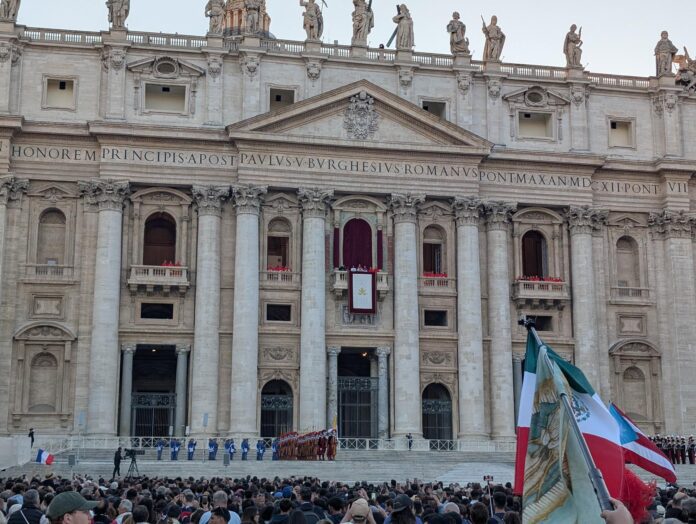Pope Leo XVI’s first Apostolic Exhortation both keeps with the example of his predecessor while adding his unique fingerprint.
Pope Leo XVI released a relatively short Apostolic Exhortation to the public Thursday, Oct. 9, which has been met with both praise and criticism by American Christians.
“Dilexi Te” is relatively short—only 20,000 words—and can be read in less than two hours. The following points only graze the surface of the document, which can be found online.
1. “Dilexi Te” is a continuation of Pope Francis’s work.
The exhortation, which is the first of Pope Leo’s pontificate, is called “Dilexi Te” Latin for “He loved you.” Early reports about the subject of the exhortation claimed that it was about the treatment of the poor and was a continuation of Pope Francis’s Papal Encyclical “Dilexit Nos” (“He loved us”).
Pope Francis’ “Dilexit Nos,” his fourth and final encyclical that came out in October 2024, urged 21st-century Christians to renew their devotion to the Sacred Heart. According to recent reports, Pope Francis began “Dilexi Te” shortly after “Dilexit Nos” was released and intended the work to be an encyclical as well.
Pope Leo inherited “Dilexi Te” from Pope Francis and changed its status to an Apostoloic Exhortation, rather than a Papal Encyclical, which is of a little less weight. Whereas an encyclical calls for some moral correction, an apostolic exhortation is more of a call to reflection.
2. The exhortation is about correct love for the poor.
The exhortation began by reminding Christians that “The condition of the poor is a cry that, throughout human history, constantly challenges our lives, societies, political and economic systems, and, not least, the Church. On the wounded faces of the poor, we see the suffering of the innocent and, therefore, the suffering of Christ himself.”
Pope Leo warned that issues of undernourishment, dehydration and starvation are now—like the images of the 2015 death of a 2-year-old Syrian boy on a beach—“seen as marginal news items.”
In the exhortation, Pope Leo issued a call to action: “No Christian can regard the poor simply as a societal problem; they are part of our ‘family.’ They are ‘one of us.’ Nor can our relationship to the poor be reduced to merely another ecclesial activity or function.”
3. The concept that “God chooses the poor.”
The second chapter of “Dilexi Te” calls Christians to remember that God, in choosing to be born as man in a manger in Bethlehem, chose the life of poverty, and that “The Gospel shows us that poverty marked every aspect of Jesus’ life.”
Pope Leo continued by reminding the reader that Christ calls for mercy to friends and enemies alike. Because of this, “works of mercy are recommended as a sign of the authenticity of worship, which, while giving praise to God, has the task of opening us to the transformation that the Spirit can bring about in us, so that we may all become an image of Christ and his mercy towards the weakest.”
4. “Dilexi Te” addresses political approaches to poverty.
Later in the Exhortation, Pope Leo mentioned that “popular movements,” or movements of laymen aimed at relieving the struggles of the poor, can be effective and should be included when governments attempt to address poverty.
“If politicians and professionals do not listen to [popular movements],” the exhortation reads before quoting Pope Francis, “democracy atrophies, turns into a slogan, a formality; it loses its representative character and becomes disembodied, since it leaves out the people in their daily struggle for dignity, in the building of their future.” The same must be said of the institutions of the Church.”
Addressing the issue of migrants, which was a major focus of Pope Francis’s pontificate, Pope Leo built off of his predecessor’s words, saying that, “They are an occasion that Providence gives us to help build a more just society, a more perfect democracy, a more united country, a more fraternal world and a more open and evangelical Christian community.”
Pope Leo then added that, “The Church, like a mother, accompanies those who are walking. Where the world sees threats, she sees children; where walls are built, she builds bridges.”
Sam Korkus is a Junior English major. He is the commentary editor for the Cor Chronicle and a member of UD’s YAF chapter.
